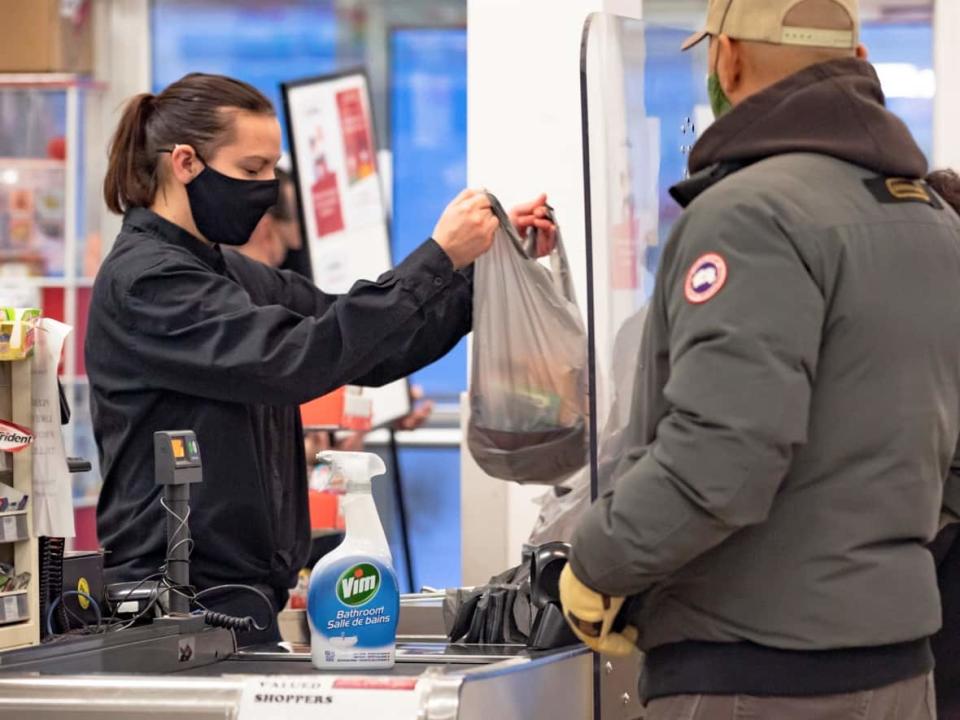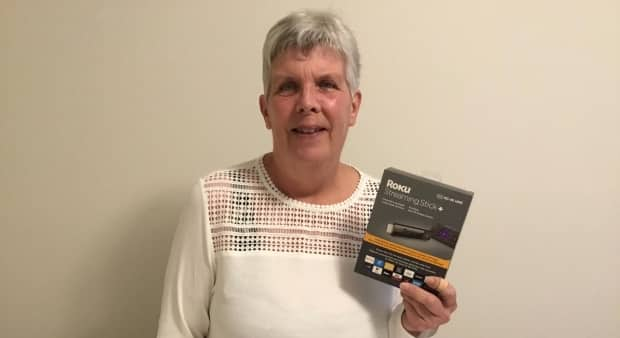Attention shoppers: Overcharged for an item at checkout? You might be able to get it for free

Planning to spend big this holiday season after last year's lockdowns? It pays to check your bill before leaving the store.
Not only might you catch a mistake, but if you were overcharged for an item, you may also be able to get it for free or at a discount.
More than 7,000 retail stores in Canada — including many large chains — are members of the voluntary Scanner Price Accuracy Code.
Managed by the Retail Council of Canada (RCC), the code mandates that when shoppers are overcharged for certain items scanned at checkout, they're entitled to compensation.
"I love it," said Roxanne Joshua, of Newcastle, Ont., who learned about the code more than a decade ago. Over the years, she says she's been compensated about 150 times after catching pricing errors at the till.
"It's great for a couple of reasons," she said. "One, obviously, I get free items or discounted items. But two, it also keeps the stores accountable."
How to get your discount
Canada's Price Accuracy Scanner Code has been around for nearly two decades, however, many shoppers still don't know about it. The code was created in 2002 by retail organizations to foster consumer confidence as stores began to adopt scanning devices at checkout.
"There was an element of lack of trust of machines reading barcodes," said Greg Wilson, the Retail Council of Canada's director of government relations in B.C.
The code applies to participating retailers across the country, except in Quebec, which has provincial laws covering retail pricing errors.
Here's how the code works: When a customer alerts the retailer that the price of an item scanned at checkout (or self-checkout) is higher than the advertised price, participating retailers must honour the lower price.
On top of that, if the item costs more than $10, the customer gets a $10 discount. If the item costs less than $10, the customer gets the item for free.

On Monday, Karen Mellow, of Leamington, Ont., purchased a Roku streaming device at Best Buy. The advertised price in the store was $44.99, she said, however, when the cashier scanned the item at checkout, she was charged $64.99.
When Mellow pointed out the error and mentioned the code — of which the store is a member — she said she was charged the lower price and got the $10 discount.
"Instead of $65, I paid $35," she said. "[The code], to me, ensures a retailer is trying to be honest."
Exclusions
The code applies to scanned items where the lower price is advertised in flyers, online ads or displayed in-store — such as on a shelf.
Individually priced items aren't covered by the code, however, and it also excludes weighed items, prescription drugs and behind-the-counter cosmetics.
Participating retailers include major chains like Best Buy, Canadian Tire, Costco, Home Depot, Loblaws, Shoppers Drug Mart, Sobeys, Toys "R" Us and Walmart Canada.
Participants are supposed to post a sign about the code at or near store entrances. However, shoppers may not notice it, unless they're aware of the code's existence.

Joshua said she first learned about the code by reading about it in an online blog.
One memorable experience for her was when she bought bathroom items, including a faucet and tiles, at Home Depot for a renovation project. All eight items were incorrectly priced when scanned, she said, so she got a $10 discount on each one.
"I felt like I almost won the lottery," she said. "Now I had an extra $80 back in my pocket."
But the process is not always seamless, she warns. Joshua said there's been several times where she's had to battle a store employee to receive the compensation, because the employee wasn't knowledgeable about the code.
"I think if the staff is a little bit more educated, we wouldn't have these types of problems," she said.

While new staff sometimes may not yet be educated about the code, the RCC's Wilson said in general, the system works well. "We receive actually a very small volume of complaints about it," he said.
Customers who have unresolved disputes involving the code can contact the code's complaints line at: 1-866-499-4599.
Mellow said she once called the complaints line after the cashier at a major retailer refused to honour the lower, advertised price on two umbrellas she wanted to purchase.
After making the call, she said, the dispute was quickly resolved and she got more than she bargained for.
"I got a call back a while later from the manager. He said, 'You can come and pick out four umbrellas [for free] to make up for this mistake.'"
Why isn't the code mandatory?
In Quebec, all retailers must abide by mandatory price accuracy laws that are similar to those of the code. The province has also enacted rules for most individually priced goods, mandating that when customers are charged a higher price at checkout, the retailer must honour the lower ticketed price.
WATCH | Shoppers Drug Mart customers complain they were pushed to use self-checkout:
The Scanner Price Accuracy Code doesn't apply to individually priced items, Wilson explained, because that issue is covered by Canada's Competition Act, which prohibits retailers from making false or misleading claims about the price of a product.
So if a retailer refuses to honour the ticketed price under that act, the customer would have to file a complaint with the Competition Bureau and await the outcome of an investigation.
Consumer advocate and lawyer Daniel Tsai said he believes there should be mandatory rules for all retailers — at least for large chains — mandating that they must honour an item's lower ticketed or advertised price.
"As a general rule, it makes sense that the price you see as a customer should be the price you pay."

